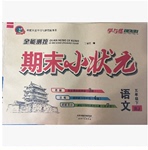题目内容
The most 1thing during my long summer holiday last year, of course is my trip2England. This was my first time to go abroad, so it really made me3.
At first,I went to Shakespeare's 4. It was the house5Shakespeare was born and6his early years.7sitting room, hallway, bedrooms, and kitchen were furnished (布置) in sixteenth-century8. I also went to see the Shakespeare Exhibition. It showed Shakespeare's life and career in both Stratford and London.
I really enjoyed this nice trip to England, 9I learnt a lot. I'm very happy that I could visit such an interesting 10. I want to go there again in the future.
- 1.
- A.unforgettable
- B.unexpected
- C.fashionable
- D.famous
- A.
- 2.
- A.at
- B.for
- C.on
- D.to
- A.
- 3.
- A.excited
- B.disappointed
- C.exciting
- D.disappointing
- A.
- 4.
- A.school
- B.birthplace
- C.room
- D.home
- A.
- 5.
- A.who
- B.that
- C.when
- D.where
- A.
- 6.
- A.paid
- B.spent
- C.cost
- D.took
- A.
- 7.
- A.It's
- B.Its
- C.It had
- D.It was
- A.
- 8.
- A.style
- B.site
- C.shape
- D.shade
- A.
- 9.
- A.for which
- B.which
- C.from which
- D.in which
- A.
- 10.
- A.place
- B.town
- C.country
- D.summer
- A.
ADABD BBACC

练习册系列答案
 全能测控期末小状元系列答案
全能测控期末小状元系列答案
相关题目